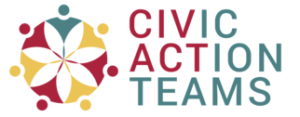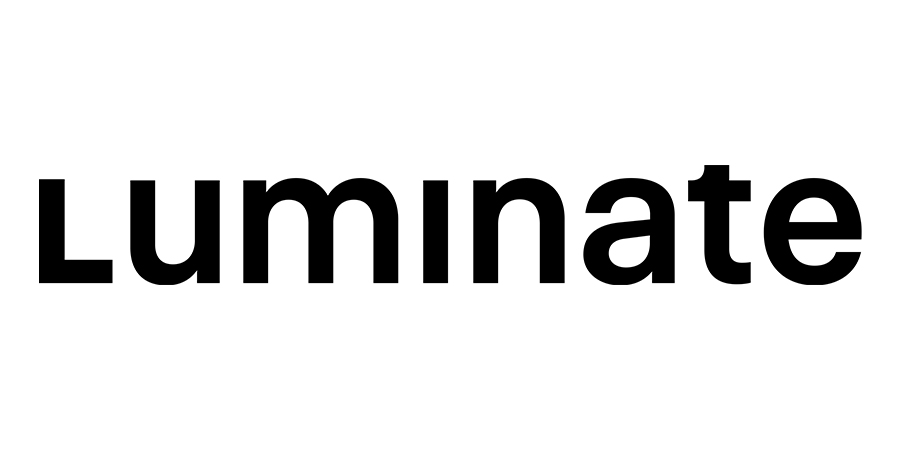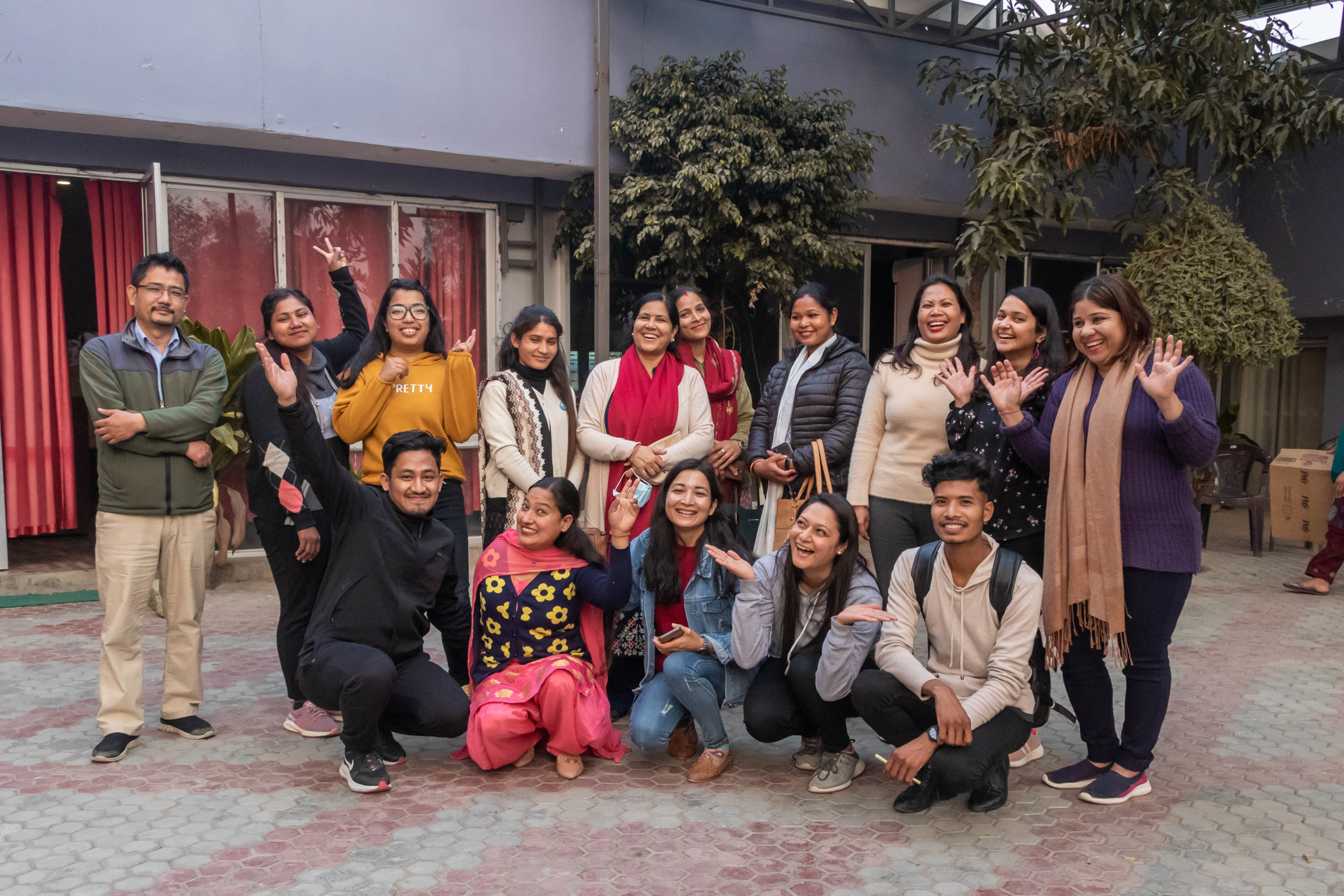
Inclusion Fellows: Gov-her-nance
Written by: Accountability Lab Nepal
Introducing a team of active young female leaders to make Dhangadhi Sub-Metropolitan City a gender-friendly city, who ensure marginalized voices are included in local governance.
Pramila Tharu
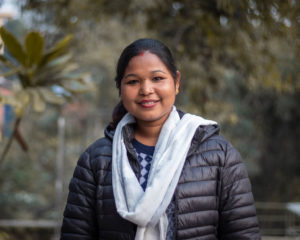 Pramila is young and passionate about gender equality. Currently, she is working as a Secretary in a locally formed committee. As she has never been involved in any professional work before, she hopes to get learning opportunities in this project. Her goal is to advocate gender equality in her community with the message of not limiting women’s roles to the household chores. She is committed to bringing forward the issues from the marginalized groups (Dalits, disabled, violence victims, etc.) In her spare time, she likes to spend her time with her children and help them study and complete their assignments.
Pramila is young and passionate about gender equality. Currently, she is working as a Secretary in a locally formed committee. As she has never been involved in any professional work before, she hopes to get learning opportunities in this project. Her goal is to advocate gender equality in her community with the message of not limiting women’s roles to the household chores. She is committed to bringing forward the issues from the marginalized groups (Dalits, disabled, violence victims, etc.) In her spare time, she likes to spend her time with her children and help them study and complete their assignments.
Message: The government should provide different kinds of skill-oriented training to women of marginalized groups and violence victims in order to empower them. Youths along with the government and everyone should work together to end the gender disparities and end unwanted cultural practices from society.
Sunita Rana
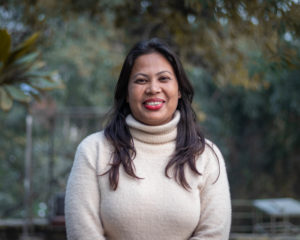 Sunita is passionate about building an inclusive society by strengthening women and youths both economically and socially. Currently, she is working as a district secretary in an organization called Ruduk. Side by side, she is also continuing her master’s in education M.Ed (Masters in Education). Sunita believes that women’s participation should be increased in mainstream politics. Through this project, she hopes to highlight the policy-related issues concerning women with awareness programs, feedback generation, communication, etc. She also aims to reach more disadvantaged women and gender minorities from potential collaboration opportunities with the local government. In her spare time, she spends her time in her own tomato sauce industry, poultry, and insurance.
Sunita is passionate about building an inclusive society by strengthening women and youths both economically and socially. Currently, she is working as a district secretary in an organization called Ruduk. Side by side, she is also continuing her master’s in education M.Ed (Masters in Education). Sunita believes that women’s participation should be increased in mainstream politics. Through this project, she hopes to highlight the policy-related issues concerning women with awareness programs, feedback generation, communication, etc. She also aims to reach more disadvantaged women and gender minorities from potential collaboration opportunities with the local government. In her spare time, she spends her time in her own tomato sauce industry, poultry, and insurance.
Message: The local government needs to continuously bring different programs for women empowerment and they should allocate a budget specifically for women.
Sunita BK
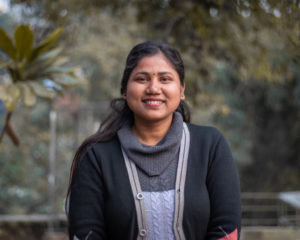 Sunita holds a bachelor’s degree in mass communication and has been working as a journalist in “Radio Paschim Today” for the last three years. Her parents are her strong supporters and their continuous support encouraged her to complete her education and help her family. Through this project, she hopes to bring women especially from the gender minorities to the forefront and empower them. She commits to unmask the problems and challenges faced by the disadvantaged groups and reach appropriate solutions. In her free time, she enjoys reading books, newspapers, and indulging in social service.
Sunita holds a bachelor’s degree in mass communication and has been working as a journalist in “Radio Paschim Today” for the last three years. Her parents are her strong supporters and their continuous support encouraged her to complete her education and help her family. Through this project, she hopes to bring women especially from the gender minorities to the forefront and empower them. She commits to unmask the problems and challenges faced by the disadvantaged groups and reach appropriate solutions. In her free time, she enjoys reading books, newspapers, and indulging in social service.
Message: The government initiatives have not been tangible so far. The government should work towards developing programs for increasing outreach and improving the economic and cultural status of women and gender minorities.
Pramila Lamshal
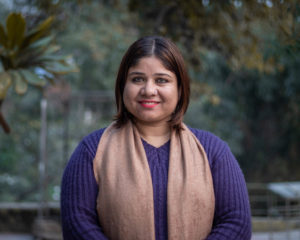 Pramila Lamshal has the experience of working as a treasurer at Rural Women’s Development and Unity Center (RUWDUC) and social activist on several platforms. Growing up in the community of Tharu, Rana Tharu, and other Dalit communities, Sarita saw the prevalent caste-based discrimination from a very young age. With the same lenses, she started working as a social changemaker for removing disparities on social, economic, gender, geographic, environmental fronts. Through this project, she hopes to polish her skills and focus on inclusion by advocating the need for change in society by uplifting people of all backgrounds. In her free time, she enjoys traveling, writing articles and blogs, and indulging herself in literature.
Pramila Lamshal has the experience of working as a treasurer at Rural Women’s Development and Unity Center (RUWDUC) and social activist on several platforms. Growing up in the community of Tharu, Rana Tharu, and other Dalit communities, Sarita saw the prevalent caste-based discrimination from a very young age. With the same lenses, she started working as a social changemaker for removing disparities on social, economic, gender, geographic, environmental fronts. Through this project, she hopes to polish her skills and focus on inclusion by advocating the need for change in society by uplifting people of all backgrounds. In her free time, she enjoys traveling, writing articles and blogs, and indulging herself in literature.
Message: Many laws or policies are made for women and gender minorities but the awareness level is very low. We should work together to fill this persistent gap.
Bimala Kathyat
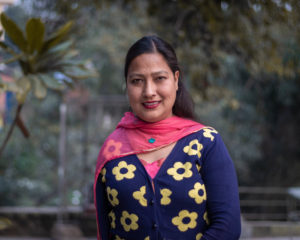 Bimala is a student of Masters in Sociology and has the experience of teaching in a school for a year. She strongly believes in the power of hard work and perseverance and has shown the same persistence to grow from a very young age. Through this project, Bimala hopes to impart equal opportunities for all irrespective of their caste, religion, and gender. In her free time, she likes to travel and work towards her plan of becoming a social worker in the future.
Bimala is a student of Masters in Sociology and has the experience of teaching in a school for a year. She strongly believes in the power of hard work and perseverance and has shown the same persistence to grow from a very young age. Through this project, Bimala hopes to impart equal opportunities for all irrespective of their caste, religion, and gender. In her free time, she likes to travel and work towards her plan of becoming a social worker in the future.
Message: The policies linking our society and various disadvantaged sections should be promoted and disseminated in such a way that it reaches every citizen.
Pushpa Bhatta, Ojha
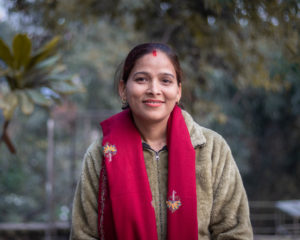 Pushpa is a student of Bachelors of education and an educator in a school located in her society. She has 8 years of volunteering and training experience at the community level. Through this project, she hopes to be able to identify, analyze, and evaluate problems prevalent in society for reaching appropriate solutions. She also hopes to advocate against practices such as Chhaupadi, witchblaming, etc. by empowering people on physical, mental, and emotional fronts. She states that this project has rejuvenated her desire to contribute to society. In her free time, she enjoys educating and training girls or women in her community.
Pushpa is a student of Bachelors of education and an educator in a school located in her society. She has 8 years of volunteering and training experience at the community level. Through this project, she hopes to be able to identify, analyze, and evaluate problems prevalent in society for reaching appropriate solutions. She also hopes to advocate against practices such as Chhaupadi, witchblaming, etc. by empowering people on physical, mental, and emotional fronts. She states that this project has rejuvenated her desire to contribute to society. In her free time, she enjoys educating and training girls or women in her community.
Message: The government and concerned authorities should pay attention to the problems occurring at the local level. Without their support, it will be difficult for the communities to eradicate the issues that are paralyzing our society.
Rewati SK
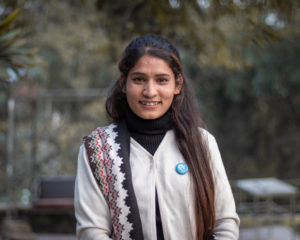 Rewati is a student of Bachelors in Sociology. Belonging to the Dalit community with a weak economic status made Rewati understand the intricacies linked to caste-based discrimination at a very young age. Therefore, she was determined to complete her education even if there was constant marital pressure from her home. She understands the hardships faced by the backward communities and hopes to change the cultural perception to empower a broad section of our society. Through this project, she wants to make the voices of her community heard by taking the issues to the local government. With the same aspiration, she also hopes to inspire young girls for educating themselves and creating their own identity in society. In her free time, she likes to read.
Rewati is a student of Bachelors in Sociology. Belonging to the Dalit community with a weak economic status made Rewati understand the intricacies linked to caste-based discrimination at a very young age. Therefore, she was determined to complete her education even if there was constant marital pressure from her home. She understands the hardships faced by the backward communities and hopes to change the cultural perception to empower a broad section of our society. Through this project, she wants to make the voices of her community heard by taking the issues to the local government. With the same aspiration, she also hopes to inspire young girls for educating themselves and creating their own identity in society. In her free time, she likes to read.
Message: The government should prioritize job creation and provide vocational training to the people of Dalit community.
Birendra Chaudhary
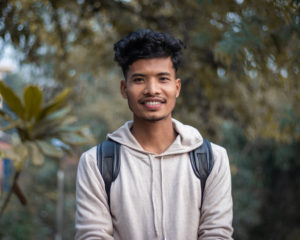 Birendra was born and brought up in Dhangadhi. He identifies himself as a homosexual man. He expresses that it was not easy for him to come out in front of his family and friends due to stigmatization. He has been involved in Sudurpaschim Samaj, which is a community-led organization for sexual and gender minorities. Birendra strongly believes that the stigmatization, stereotypes, and judgment towards the members of the queer community is very unfair. Through this project, he wants to bring out their voices of daily struggle, identity issues, judgment, impacts on mental health, etc.
Birendra was born and brought up in Dhangadhi. He identifies himself as a homosexual man. He expresses that it was not easy for him to come out in front of his family and friends due to stigmatization. He has been involved in Sudurpaschim Samaj, which is a community-led organization for sexual and gender minorities. Birendra strongly believes that the stigmatization, stereotypes, and judgment towards the members of the queer community is very unfair. Through this project, he wants to bring out their voices of daily struggle, identity issues, judgment, impacts on mental health, etc.
Message: The local government should also consider the LGBTIQ+ communities in their policies and programs, while society needs to understand and support them rather than discriminate against them.
